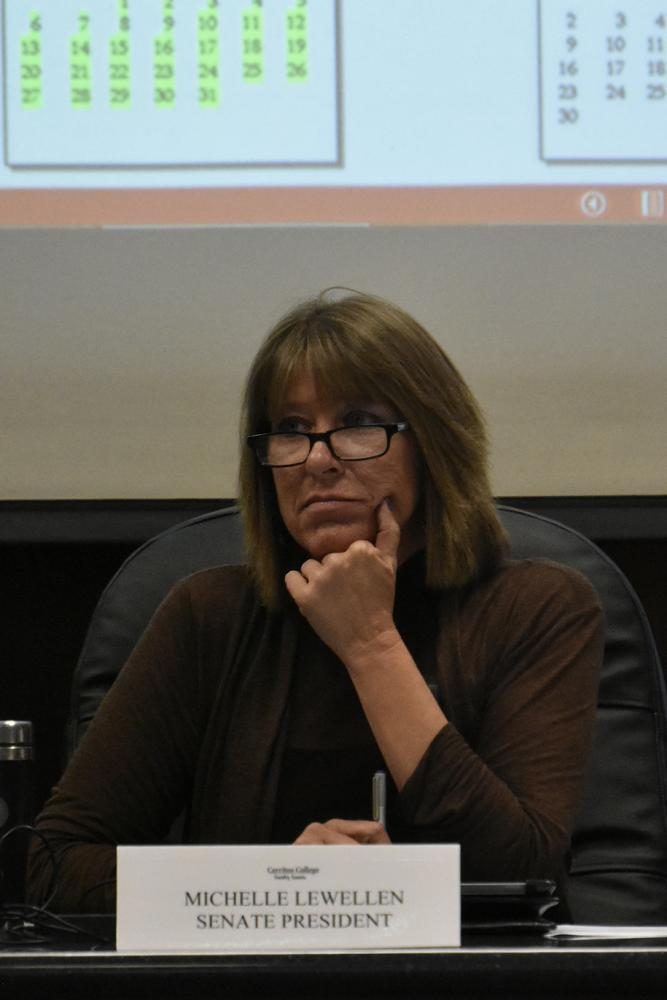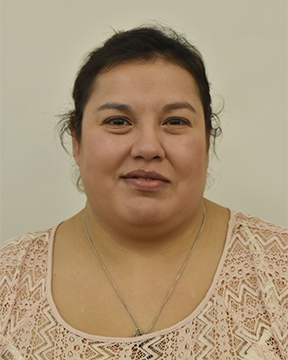The discussion for changing the college’s academic semester to a 16-week semester continues from earlier in the semester; adding a winter intersession to the academic calendar is a possibility that both Faculty Senate and the Business Services Office are exploring.
However, per President Jose Fierro the change to a 16-week semester is still at least two years away.
Once the college agrees on the new academic schedule, new contracts for faculty are signed, the Board of Trustees approves the change and the chancellor’s office reviews and approves the 16-week calendar it won’t be until fall semester that the change can take place.
That means the earliest time the college would be on a 16-week academic schedule would be in two years.
Faculty Senate President Michelle Lewellen presented Faculty Senate with four sample options for the new academic schedule, the options included a winter intersession of four or five weeks or the option of not having it at all.
Student Senate Liaison Allen Malfovan would like to have the winter intersession included in the 16-week calendar.
As a returning student, he sees the winter intersession as an opportunity to improve his grade point average and be eligible for internships.
He said, “I think there are a lot of students that are constraint by a lack of a winter intersession, a lot of students that I am friends with wish to do internships over the summer and they can’t myself included.”
Taking a class during summer for him and his friends means not being able to take advantage of opportunities and gain experience in the field they what to be a part of once they graduate.
Furthermore, “For returning students, sometimes they haven’t left on the best of terms and when they come back they have that GPA that doesn’t reflect their current potential. Last semester was my first semester back in four years, so I had a subpar GPA; it didn’t matter I was doing well in my classes in my transcript what was reflected was a period of time where I performed poorly,” Malfavon said.
His GPA at the time made him ineligible for scholarships, TAP for Berkley and other GPA based programs. He had to wait until the end of the semester once grades where recorded to be in good standing.
Faculty Senate Secretary April Griffin agreed with Malfavon in that the 16-week calendar should help students have more flexibility on when to take their classes.
Prior to her five years at Cerritos College Griffin worked in a 16-week calendar, “One of the things I really liked about some of the districts that I part timed in was that they were 16 week calendars. In fact, I didn’t realize the 18-week calendar existed until I came to Cerritos. I was a little surprised when I was making my first syllabus.”
She also said the change in calendar and adding the winter intersession would give students the choice on how long a break to take after the spring semester. Students would have the option of having a weekend break, a three week break or much longer break if they decide not to take anymore classes until fall.
The 16-week calendar would also impact student services such as counseling; Counselor Armando Soto said, “The input that we got from students is that they wanted a winter intersession so I think we have to honor that agreement.”
Academic counseling works on registration cycles and Soto hasn’t explored the impact the change in weeks would have on counseling.
He said, one option could be registering for winter and spring together.
Soto said, “As the discussion progresses we’re going to look at our business practices and how we register students.”
One concerns he had looking the options for the new calendar, was when spring ends in June spring shouldn’t end to late.
“For students that are transferring, part of their transcripts and grades need to be sent to universities, people who are doing STEM majors the opportunity to do summer internships, summer programs or research projects, we want to make sure we have grades [ready],” Soto said.
For him ideally ending spring semester the first week of June would be the best option, which he hopes is the option that gets chosen.
As requested by the board of trustees, to better understand the financial and Business impact of the change in calendar Vice President of Business Services Felipe Lopez is working with a third party on an independent financial review.
Lopez said the change would have a financial impact in two main areas.
One being onetime costs such as IT programing set up and updates.
The second being additional cost and support issues which could be several things.
Faculty contracts would not cover the winter intersession and that could require the hiring of adjunct faculty.
Lopez said the winter intersession would also require the extra cost of having counseling services and student support services.
For example, DSPS services such as interpreters would also need to be hired.
Lopez said he was, “Not sure if it [winter intersession] would mirror what we offer in the summer.”
He also said the Full Time Equivalent Students numbers had to be looked at first before making decisions.
Fierro said, “My preference is that we select a schedule that is first focused on student convenience rather than my preference or their preference it has to be what makes more sense to allow the students to schedule their classes better and to continue their academic progress faster.”










